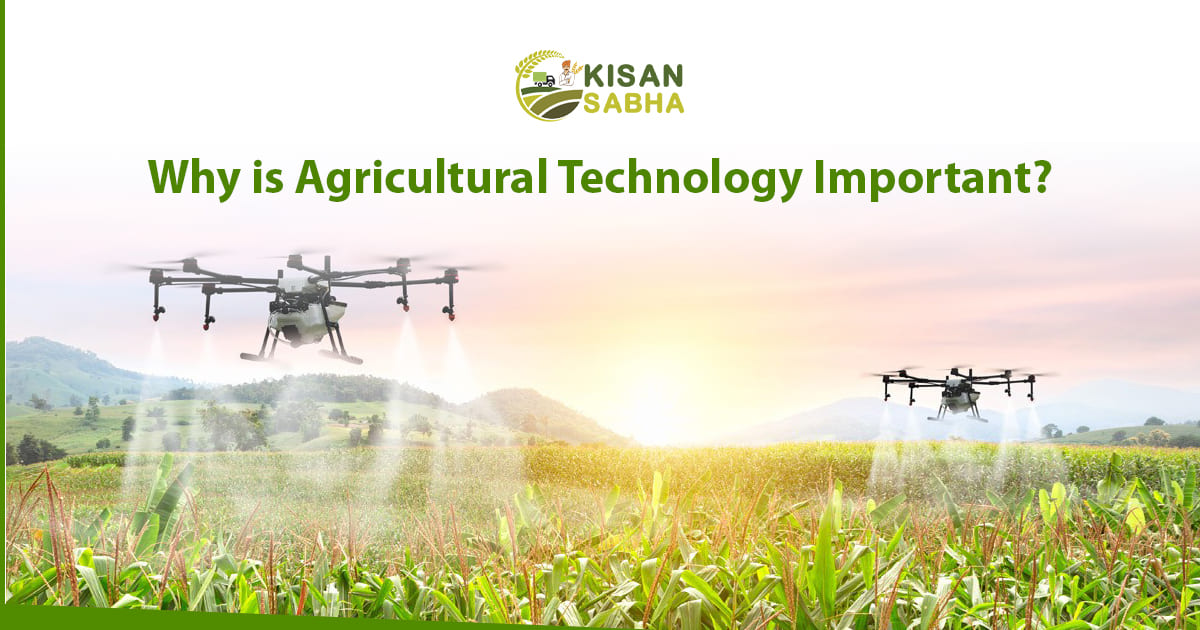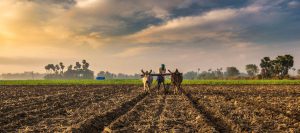When machinery was utilized to boost agricultural and animal yields during the Industrial Revolution, the field of agriculture, sometimes known as agri-tech, was born. It has endured as one of the biggest achievements in human history and served as a breakthrough to soothe the thronging world population, which is predicted to reach 9.7 billion people by the year 2050. To increase sustainability, agricultural technology directly applies machinery, artificial intelligence, and other types of technology to agriculture and its related industries.
Due to the quick development of technology over the last century, planting, synthetic fertilizers, irrigation, environmentally friendly and intelligent farming, and harvesting have all seen improvements worldwide. All of them have purposefully used agricultural technology to lessen labor requirements and boost output, including monitoring advantageous planting seasons through weather forecasts.
To increase agricultural output, agricultural technology combines traditional farming practices with cutting-edge technical advancements.Agri-tech creates and programs machinery utilizing technology to enhance all steps involved in growing crops and raising livestock while using fewer resources and boosting profits.
Importance of Agricultural Technology
Agricultural technology applies to produce quicker, better, and more resilient plant and animal species, explaining its importance or relevance.
These are some great instances of how useful agricultural technology is:
- Artificial intelligence diagnoses pest and disease issues in crops and animals, providing suitable solutions.
- Analysis of information, farm records, and extensive agricultural statistics using big data.
- Robotics to reduce the time it takes to grow, harvest, and process food.
- Agricultural technology’s value lies in helping the agriculture sector overcome current and future challenges.
- AI synergy powers automated detectors for pests, and plant diseases, and innovative sorting and spraying crop equipment.
Resistant cultivars developed through genetic engineering and biotechnology enable crop production in difficult areas. Aerial imagery, GPS technology, and smart farming further advance modern agriculture. Precision agriculture companies such as Kubota Crop and John Deere use automated equipment guidance, which is expected to increase worldwide crop productivity by 10% to 15% by 2030, according to the World Economic Forum. Technological developments continue to shape agriculture’s future, increasing sustainability and production. For example, in a recent study by Kubota and Aurea, aerial imaging identified early signs of leaf discoloration in orchids, resulting in up to 89% fertilizer savings with targeted fertilizer delivery.
Advantages of Agricultural Technology
- Increased resistant varieties result in less expensive food items since they consume less water, fertilizer, and pesticides.
- Reduced chemical runoff into waterways and farmlands, hence reducing environmental contamination.
- Farmer safety assured
- Higher crop yield
- Increased production of plants and animals, as well as improved distribution and storage management.
- Safeguarding the natural ecosphere
- Increased dependability and oversight of natural resources by aerial photography, such as water and air.
Uses of Agriculture Technology
Understanding the full significance of agricultural technology is impossible without examining its application in the field of agriculture. You can better understand the relevance and usability of agricultural technology thanks to this analytical spin-off. Here are a few examples.
Biotechnology
Biotechnology combines biology and technology to develop new kinds and drastically alters agricultural technology. “Genetic engineering” describes the process of modifying a plant or animal’s genetic makeup to increase productivity.
The objective breed resilient plants and animals that can thrive everywhere. Farmers can now engage in agriculture in regions previously deemed unsuitable, including dry, unproductive plains, areas infested with pests, and soils with extreme acidity and alkalinity.
Farms Machinery
Lack of or inadequate farm equipment makes it difficult for farmers to satisfy demand since it cripples the agricultural process. As a result, the poor agricultural machinery’s knock-on effects include higher farm produce prices. Consequently, agricultural technology increases farmers’ access to powerful farming equipment.
Increased agricultural productivity and lower labour and production costs resulting from the addition of more farm machinery. For instance, planters and combine harvesters make agriculture easier so that farmers can produce an abundance of food in a short amount of time. It is comparable to doing office work on a computer. Modern agriculture technology allows farmers to accomplish better farming outcomes with a great deal less labour.
GPS in Agriculture
Global positioning system, or GPS, is a development to enhance farmland status documentation. Proper documentation and record-keeping are essential for ensuring appropriate agricultural productivity. Farm records were once gathered by hand and were vulnerable to incorrect storage.
Farmers may more easily rely on more precise data for reference and decision-making when it comes to mapping, data collection, and agricultural production calculations thanks to the usage of GPS technology.
Crop Sensors
While intended to have a favorable impact on agricultural products, improper use of pesticides and chemical fertilizers might result in health risks. Therefore, determining the proper application sequence using crop sensors is crucial for achieving maximum agricultural productivity. Crop sensors make it easier for farmers to apply pesticides and fertilizers by guiding them to use exactly the quantity needed for the crops to prevent issues like leaching.
Also Read:- Difference Between Industrial and Sustainable Agriculture
Conclusion
In summary, technology in agriculture is essential for tackling the complex issues the world food system faces. A more secure and sustainable food future is being paved by technology developments in agriculture, which are increasing production and efficiency and fostering sustainability and climate resilience. Farmers can fulfill the rising demand for food while maximizing resource use, minimizing environmental effects, and adapting to climate change by adopting these technologies.




